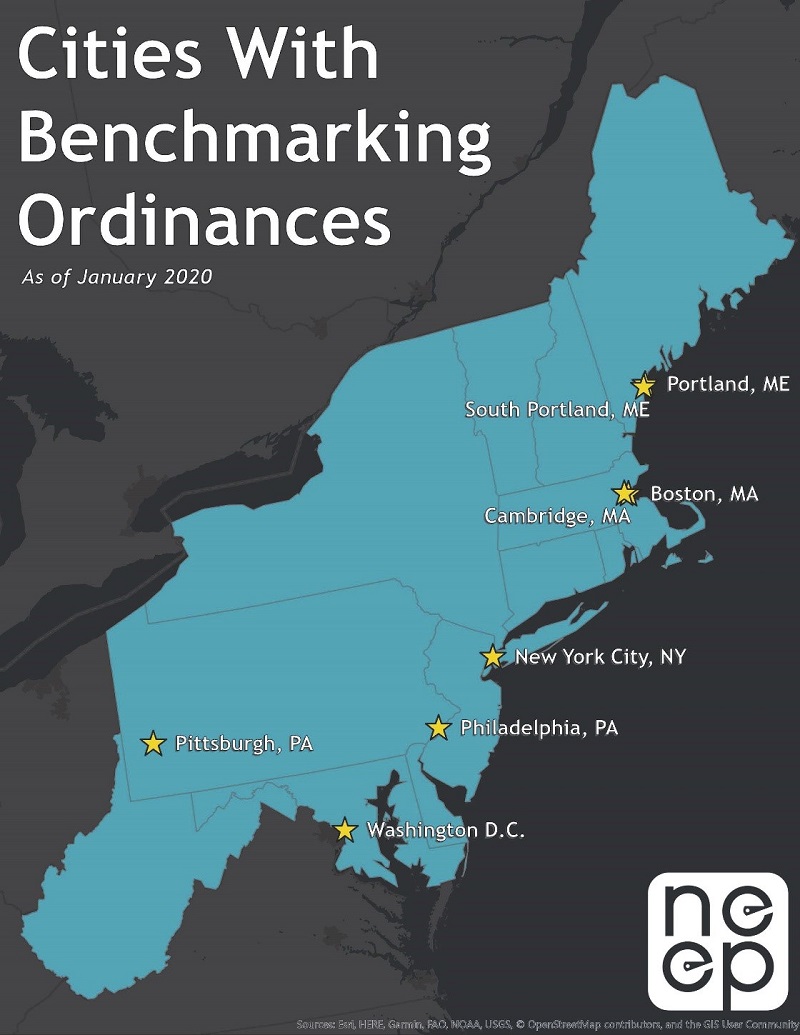

By John Balfe | Fri, February 21, 20
Since the dawn of time, energy efficiency supporters have touted benchmarking as the critical first step to reducing energy consumption in the buildings sector. Whether it's the first step or not, the age-old saying "you can't manage what you don't measure" is true. Assessing our energy performance is critical to inform improvement efforts.
Benchmarking programs raise awareness and bring attention to building energy consumption within the real estate market with the hopes that this would lead to actual improvements in energy usage. A Lawrence Berkeley National Lab analysis of benchmarking and transparency policies indicates a 3 to 8 percent reduction in gross energy consumption or energy use intensity over a two-to four-year period. While this type of progress is encouraging, additional efforts need to be made to go beyond benchmarking to achieve deeper energy savings.

So where do we go from here? Today, cities that have adopted benchmarking ordinances are starting to think about their next policy step to ensure their climate goals are being achieved. Conversations around the region are sparking a new age of building energy policies at the local level, called building energy performance standards (BEPS). These policies expand upon benchmarking efforts to set actual performance thresholds to which buildings must adhere.
New York City and Washington D.C. were early adopters of benchmarking ordinances in the NEEP region and both jurisdictions are now putting benchmarking data into action as frontrunners to adopt BEPS (see the standards side by side). Both policies have been carefully crafted with clear compliance pathways that include performance targets, timelines, building size thresholds, and other schedules that will hold building owners and managers accountable for helping achieve climate and carbon reduction goals.
These innovative new policies would not have been possible without years of operating data that the jurisdictions collected through their benchmarking programs. Leading cities, like NYC, Washington D.C., Boston, and others in the region have long-standing benchmarking programs, which make them prime candidates for BEPS, but it's critical that we all keep the importance of benchmarking in mind to help inform future BEPS that may crop up elsewhere.
Both benchmarking and BEPS are critical strategies to help achieve a decarbonized energy future. To learn more about how these two strategies should be integrated into the suite of other policies/programs, see NEEP’s Building Decarbonization Public Policy Framework.
If your community is interested in crafting a benchmarking program, NEEP has resources and technical assistance available to help with these efforts. Here are more resources on benchmarking and building energy performance standards. For help with policy/program design, contact John Balfe.
